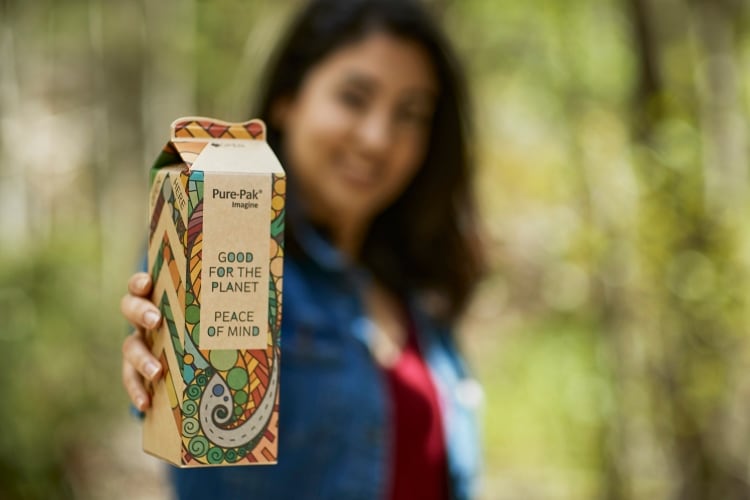The new carton is a modern version of the company’s original Pure-Pak carton, designed with an easy open feature.
“Increasingly, we see that our Pure-Pak carton system is the natural solution to the global need to reduce the usage of plastic bottles,” Elopak’s chief marketing officer Patrick Verhelst said.
“With the launch of Pure-Pak Imagine, Elopak is supporting the critical causes that represent the issues of our times – but the call to action is timeless.”
Carbon neutral since 2016, Elopak uses 100% renewable electricity and has reduced emissions by 70% over the past decade. With cartons manufactured from responsibly managed forests and FSC (FSC™C081801) certified material, Elopak offers customers 100% renewable cartons that use wood-based renewable plastics, rather than relying on petroleum-based plastics.
“We wish to play our part in the global shift towards a low carbon circular economy and have therefore created the most environmentally friendly carton possible,” Verhelst added.
“The Pure-Pak Imagine carton has no plastic screw cap and is 100% forest based made with natural brown board. The carton is fully renewable and carbon neutral, creating the perfect low carbon, circular economy approach.”
The company said the design of the Pure-Pak Imagine carton will create recognition on shelves and is currently available for the fresh dairy category.
“With Pure-Pak Imagine we aim to help consumers make conscious environmental choices. The carton’s easy opening gives the environmentally-minded consumer a more sustainable pack, with less plastic and more natural renewable materials,” Verhelst said.

